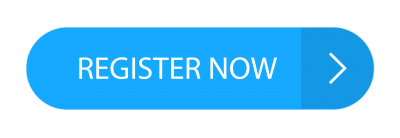Nurturing Spirituality in the Digital Age: Insights from Online Buddhist Sunday Schools
Abstract
In the rapidly evolving digital landscape, traditional religious education increasingly leverages online platforms to foster spiritual development and community among practitioners. By employing a qualitative content analysis approach to examine the YouTube recordings and Instagram content of the online Buddhist Sunday School of Guna Dharma, this study focuses on the online Buddhist Sunday School of Guna Dharma, examining its methods for cultivating spiritual journeys, fostering virtual communities, and employing innovative teaching approaches. It addresses the challenges of adapting traditional Buddhist education to digital formats, including managing online learning platforms, and maintaining student engagement. Additionally, the study emphasizes the importance of inclusivity and accessibility for diverse student backgrounds and needs, contributing to the broader understanding of online religious education's potential in the digital age.
Keywords
Full Text:
PDFReferences
Arifin, R. (2021). Analisis Pembelajaran Daring pada Sekolah Minggu Buddha di Tangerang. Edukatif: Jurnal Ilmu Pendidikan, 3(5), 3154-3162.
Bruns, A., & Stieglitz, S. (2013). Towards more systematic Twitter analysis: Metrics for tweeting activities. International Journal of Social Research Methodology, 16(2), 91-108
Darmawan, D., Siregar, H., & Firstiandi, S. U. (2023, September). Utilization of E-Module as Blended Learning Source at C-Package Equivalence Education Program PKBM Abdi Pertiwi Serang. In PICEI 2022: Proceedings of the 1st Pedagogika International Conference on Educational Innovation, PICEI 2022, 15 September 2022, Gorontalo, Indonesia (p. 52). European Alliance for Innovation.
Greenhow, C., & Robelia, B. (2009). Informal learning and identity formation in online social networks. Learning, Media and Technology, 34(2), 119-140.
Kerimbayev, N., Umirzakova, Z., Shadiev, R., & Jotsov, V. (2023). A student-centered approach using modern technologies in distance learning: a systematic review of the literature. Smart Learning Environments, 10(1), 61.
Kizilcec, R. F., Papadopoulos, K., & Sritanyaratana, L. (2017). Showing face in video instruction: Effects of visual teacher presence on student engagement. Computers & Education, 106, 186-199.
Kizilcec, R. F., Pérez-Sanagustín, M., & Maldonado, J. J. (2017). Self-regulated learning strategies predict learner behavior and goal attainment in massive open online courses. Computers & Education, 104, 18-33.
Mayer, R. E. (2009). Multimedia learning. Psychology of Learning and Motivation, 51, 317-365.
Mutaqin, M. F. T. (2020). Eksplorasi Kesejahteraan Subjektif Warga Belajar Pendidikan Kesetaraan di Lembaga Pemasyarakatan. Universitas Pendidikan Indonesia.
Putnam, R. D. (2000). Bowling alone: The collapse and revival of American community. Simon & Schuster.
Reich, J., & Ruipérez-Valiente, J. A. (2019). The MOOC pivot. Science, 363(6423), 130-131.
Rizvi, Y. S., & Nabi, A. (2021). Transformation of learning from real to virtual: an exploratory-descriptive analysis of issues and challenges. Journal of Research in Innovative Teaching & Learning, 14(1), 5-17.
Rose, D. H., & Meyer, A. (2002). Teaching every student in the digital age: Universal Design for Learning. Association for Supervision & Curriculum Development.
Rosmilawati, I. (2018). Jalan Panjang Menuju Sekolah Alternatif: Refleksi Pengalaman Remaja Kurang Beruntung dalam Meraih Pendidikan. Jurnal Eksistensi Pendidikan Luar Sekolah (E-Plus), 2(1). https://doi.org/10.30870/e-plus.v2i1.2952
Rosmilawati, I., Suherman, & Darmawan, D. (2020). The Benefit of Prison Education : Inmate Students ‟ Self Reflection. Advances in Social Science, Education and Humanities Research, 443(ISET 2019), 592–595 Arifin, R. (2021). Analisis Pembelajaran Daring pada Sekolah Minggu Buddha di Tangerang. Edukatif: Jurnal Ilmu Pendidikan, 3(5), 3154-3162.
Selwyn, N. (2016). Digital downsides: Exploring university students' negative engagements with digital technology. Teaching in Higher Education, 21(8), 980-992.
Wijoyo, H., & Nyanasuryanadi, P. (2020). Analisis Efektifitas Penerapan Kurikulum Pendidikan Sekolah Minggu Buddha Di Masa Pandemi COVID-19. JP3M: Jurnal Pendidikan, Pembelajaran dan Pemberdayaan Masyarakat, 2(2), 166-174.








.png)